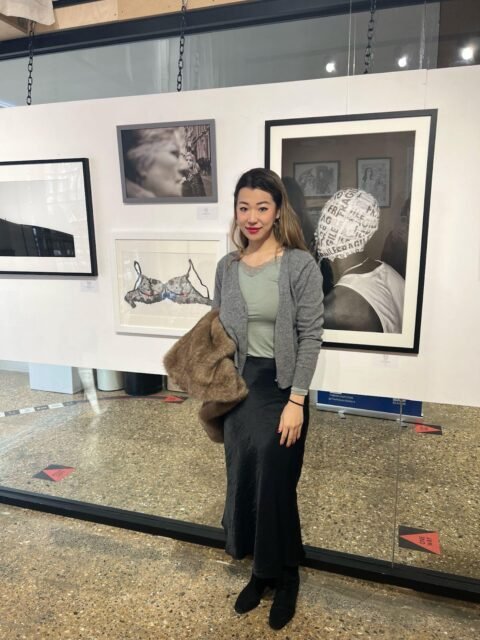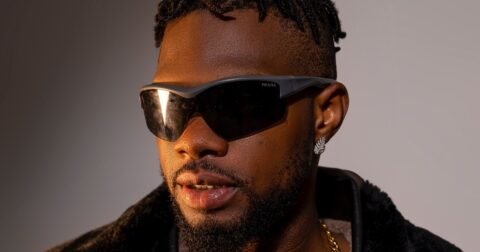Ericka J. Coulter, the Senior Vice President of A&R at Warner Records
Coulter is proactively addressing the current void in artist development by implementing a solution-oriented program.
Picture a young, dedicated assistant at her desk, juggling phone calls while crafting lyrics that would become a chart-topping hit for El DeBarge and Faith Evans. This was Ericka Coulter’s reality. Working at major labels like Interscope, Epic, and Capitol Records, where she learned from industry leaders like Ron Fair, Vincent Herbert, and Jimmy Iovine, has allowed her abilities to be recognized and nurtured. These formative experiences eventually solidified Coulter’s sense of purpose in the music game.
A pivotal call from L.A. Reid to work with Rick Ross underscored her growing influence. Today, as the Senior Vice President of A&R at Warner Records, Coulter’s mission is clear: to build a dynamic urban roster, champion emerging talent, and highlight the brilliance of R&B and hip-hop artists.
In our exclusive interview, Coulter shared her seasoned perspective on the evolving world of artist development, where each new voice has the potential to enchant with the right guidance. Coulter is a strong practitioner of being that trustworthy guide.
“What really got me into A&R was when Vincent Herbert and Troy Carter signed Lady Gaga. I got to see two Black men bring in this artist—a white girl with a hair bow made out of her own hair and glasses on, and everyone was like, ‘What is this?’ But they didn’t care if people didn’t understand it because they were so firm on it being great. They really advocated for who she was and had a vision for it. To see every step of what it took to get her to where she is now was incredible,” said Coulter.
Ericka J. Coulter, the Senior Vice President of A&R at Warner Records
It was in that pivotal moment that Coulter felt the undeniable urge to “scream” and “shout” in support of the next big star as a profession. This passion materialized as TheBasement Series in 2017, in partnership with Pandora—a sanctuary for up-and-coming artists to perform and be seen.
Operating as an underground social media platform, TheBasement Series is a modern LA-based initiative — distinct from the cultural landmark show Rap City and its legendary basement rap segments. Coulter’s basement serves as a central hub where emerging artists can showcase their talents in front of influential music executives. Rap phenoms such as Lola Brooke, G Herbo, Lakeyah, Blxst, Fridayy, and Maiya Da Don have graced TheBasement stage, all of whom have made significant strides in the modern rap scene.
“I invited a bunch of my industry friends, respected executives, and curated dope emerging artists,” Coulter recalled. “You can be signed to a major label, and people still might not know who you are. If you don’t have an advocate or a voice for you, it can be tough. Or you can be an artist working hard in a city and still not be seen or given an opportunity because you’re not attached to a major label. Where are you supposed to go to be in the room?”
It’s one thing to identify someone with potential or obvious talent, but it’s crucial to have the heart and skill to turn that talent into a polished artist. This involves more than marketing expertise, financial acumen, and problem-solving capabilities. It also requires being a career mentor who offers more support than they take away.
Honey Bxby performing at TheBasement Series in Los Angeles, June 2024.
“When I put you on the stage, then what? Do you have music ready to go? Do you have a press kit? Do you have a manager? Do you have an attorney?,” said Coulter. “There are really good people out there that can help you. Not every person is bad and not every person is trying to take advantage of you.”
The music industry currently grapples with challenges in nurturing artist development, particularly in the era of social media and TikTok. As a timely and necessary intervention, Coulter has established an Artist Development Program within TheBasement brand. While platforms like TikTok and Instagram can rapidly propel artists to fame, this swift rise often lacks the essential training and industry understanding necessary for a sustainable career.
The emphasis on virality and instant success on social media has contributed to a decline in the overall quality of musical talent, as the focus shifts towards producing catchy, short-lived content rather than fostering artistic skills and depth. Coulter’s Artist Development Program aims to provide comprehensive support, encompassing aspects such as movement coaching, vocal coaching, physical training, branding, public relations, image consulting, and studio recording.
TheBasement Series in Los Angeles, June 2024.
“We’re in a time now where identifying talent is very different from what it used to be,” said Coulter. “You used to have to attend a show, see an artist perform, and observe them in the studio. Now, you can simply look up their numbers online, and if they have good stats, they can get a record deal. There’s nothing wrong with that, but there’s another side to consider: what if they aren’t ready? What if they haven’t gone through the necessary steps of learning how to perform on stage or record in a studio?”
Becoming a prospective superstar is no easy feat in the current cipher of the hip-hop world. While virality can provide momentary influence, it does not guarantee long-term success. Fostering a career with unwavering longevity in the modern hip-hop industry requires a complex, multifaceted approach. To increase the likelihood of legacy acts emerging from the current rap generation, proper development and support are essential.




